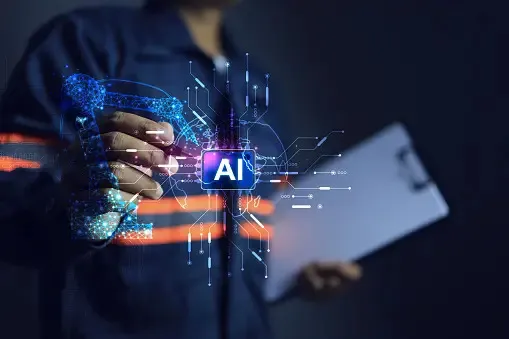|Syed Bushra Raza
Artificial Intelligence (AI) is revolutionizing various industries, and project management is no exception. By automating routine tasks, enhancing decision-making processes, and providing valuable insights, AI is transforming how projects are managed and executed. Here's an in-depth look at the impact of AI on project management:

1. Enhanced Decision-Making
AI algorithms can analyze vast amounts of data quickly and accurately, providing project managers with actionable insights. This capability enhances decision-making by:
- Predictive analytics: AI can forecast project outcomes based on historical data, helping managers anticipate potential issues and take proactive measures.
- Real-time data analysis: Continuous monitoring and analysis of project data allow for timely adjustments and improvements.
- Scenario planning: AI tools can simulate various scenarios and their potential impacts, aiding in strategic planning and risk management.
2. Improved Resource Management
Effective resource management is crucial for project success, and AI plays a significant role in optimizing resource allocation:
- Automated scheduling: AI can automate the scheduling process, considering resource availability, project timelines, and task dependencies.
- Resource optimization: AI algorithms can identify the most efficient way to allocate resources, reducing waste and maximizing productivity.
- Workload balancing: AI tools can monitor team workloads and redistribute tasks to ensure an even distribution of work, preventing burnout and improving efficiency.
3. Enhanced Risk Management
Risk management is a critical aspect of project management, and AI enhances this process by:
- Risk identification: AI can analyze historical data to identify patterns and predict potential risks.
- Risk assessment: AI tools can assess the severity and likelihood of identified risks, allowing for better prioritization and mitigation strategies.
- Proactive mitigation: With real-time data analysis, AI can detect emerging risks and recommend proactive measures to mitigate them before they impact the project.
4. Streamlined Communication and Collaboration
AI-powered tools facilitate seamless communication and collaboration among project teams:
- Chatbots and virtual assistants: AI-driven chatbots can provide instant answers to common questions, schedule meetings, and send reminders, improving team efficiency.
- Collaboration platforms: AI-integrated project management platforms enhance collaboration by providing real-time updates, task tracking, and document sharing.
- Language translation: AI-powered translation tools enable effective communication among diverse, global teams, breaking down language barriers.
5. Automated Routine Tasks
Automation of routine tasks frees up time for project managers and team members to focus on more strategic activities:
- Task assignment: AI can automatically assign tasks based on team members’ skills, availability, and workload.
- Progress tracking: Automated progress tracking tools provide real-time updates on task completion, ensuring transparency and accountability.
- Reporting: AI can generate detailed project reports, highlighting key metrics and insights, reducing the time spent on manual reporting.
6. Enhanced Customer Insights and Engagement
AI can analyze customer data to provide deeper insights into their needs and preferences, improving project outcomes:
- Customer feedback analysis: AI tools can analyze customer feedback to identify trends and areas for improvement.
- Personalized experiences: AI can help tailor project deliverables to meet individual customer needs, enhancing satisfaction and engagement.
- Predictive customer behavior: AI can predict customer behavior, helping project managers anticipate needs and adjust strategies accordingly.
7. Continuous Improvement
AI enables continuous improvement by providing ongoing insights and recommendations:
- Performance monitoring: AI tools can continuously monitor project performance, identifying areas for improvement.
- Process optimization: AI can recommend process improvements based on data analysis, leading to increased efficiency and effectiveness.
- Learning from data: AI systems learn from past project data, improving their accuracy and effectiveness over time.
The impact of AI on project management is profound and far-reaching. By enhancing decision-making, improving resource management, streamlining communication, automating routine tasks, and providing valuable insights, AI is transforming how projects are managed. As AI technology continues to evolve, its integration into project management practices will only deepen, offering new opportunities for efficiency, innovation, and success. Embracing AI in project management not only prepares organizations for the future but also sets them on a path toward more effective and efficient project execution.

